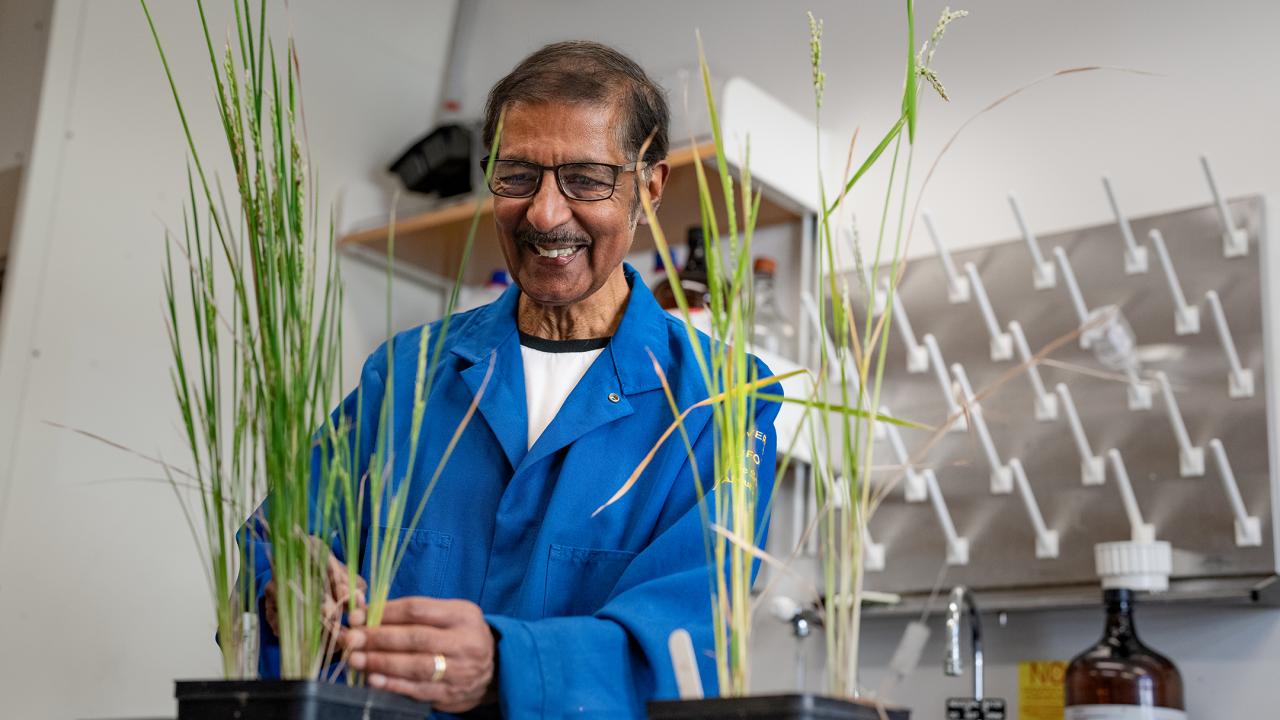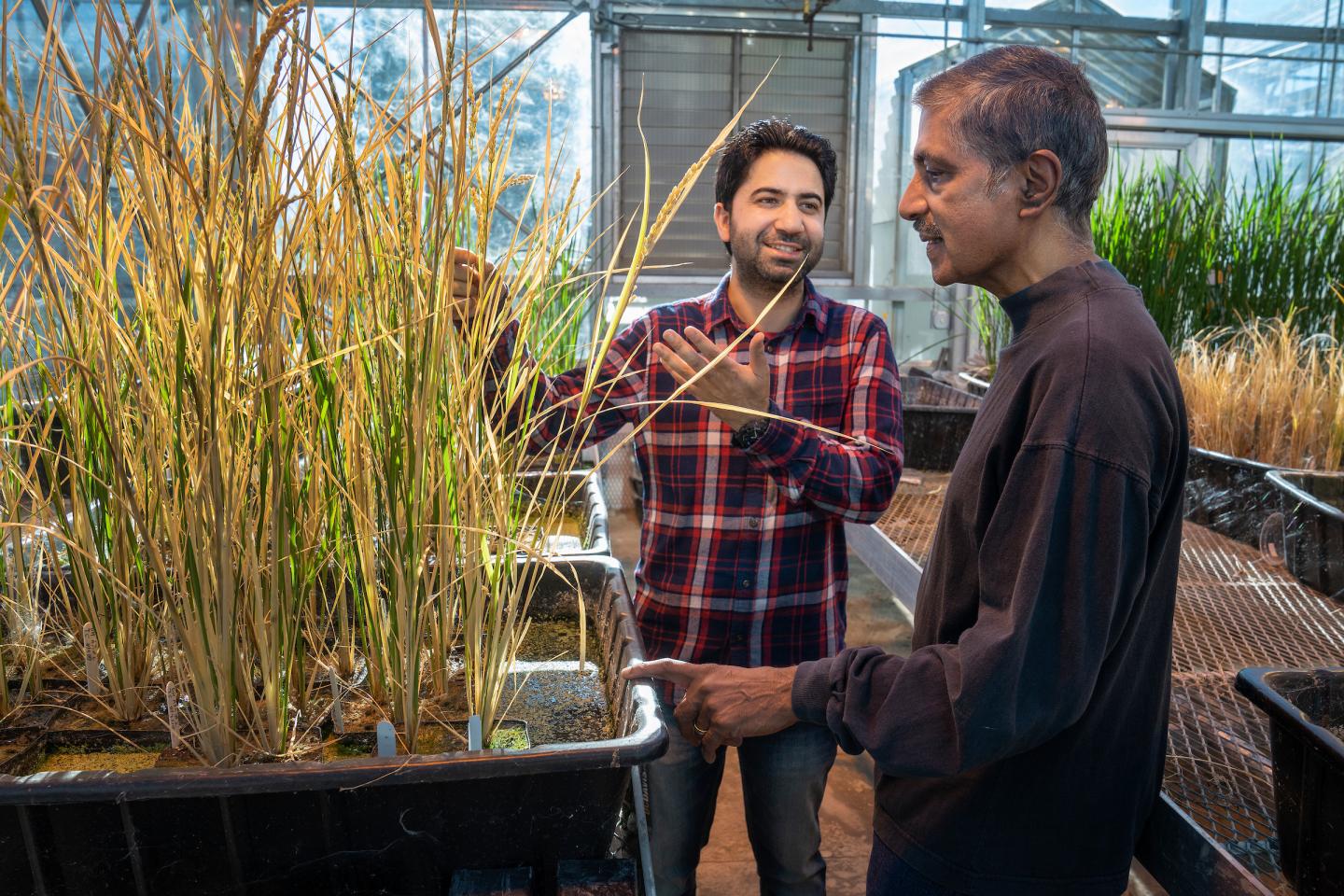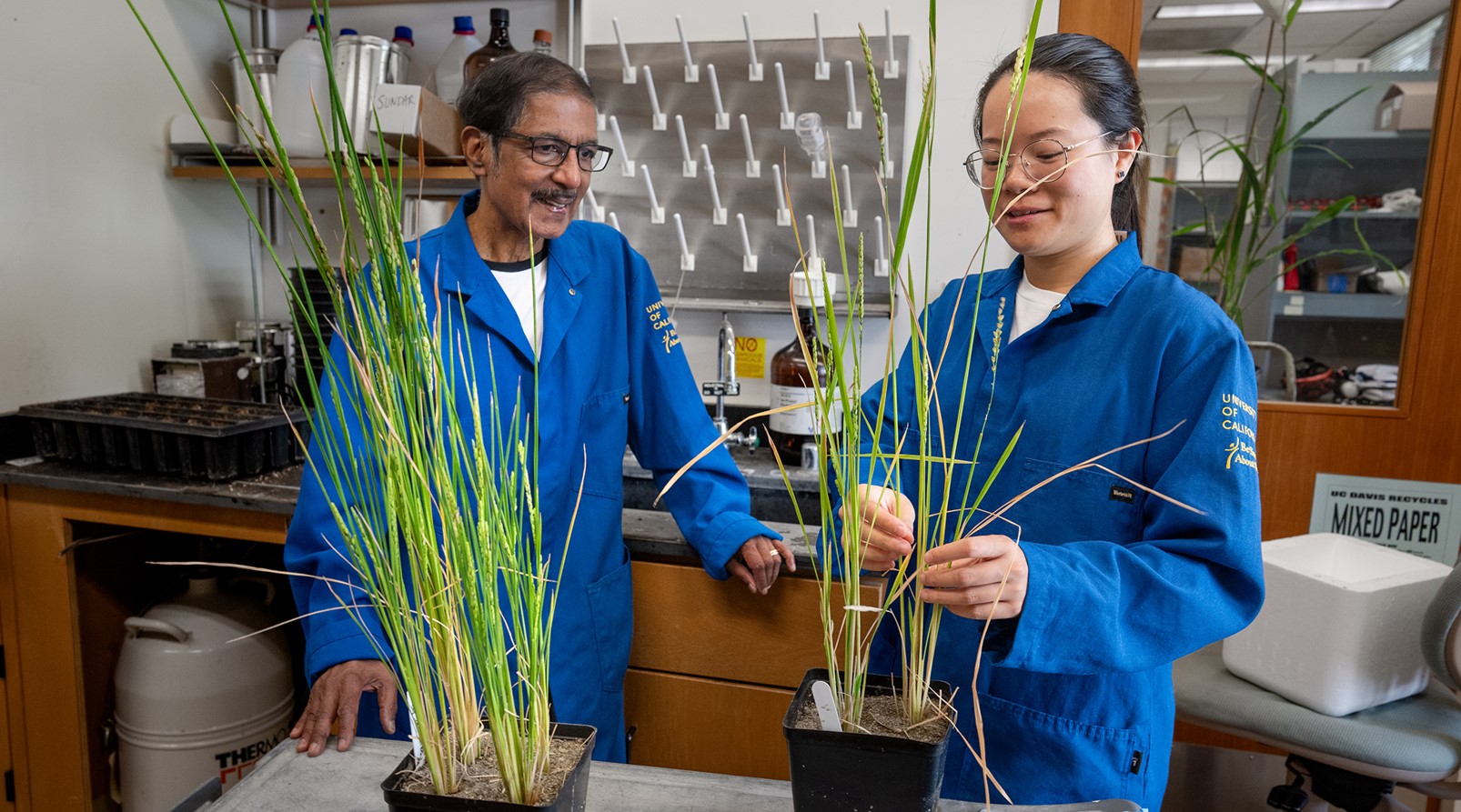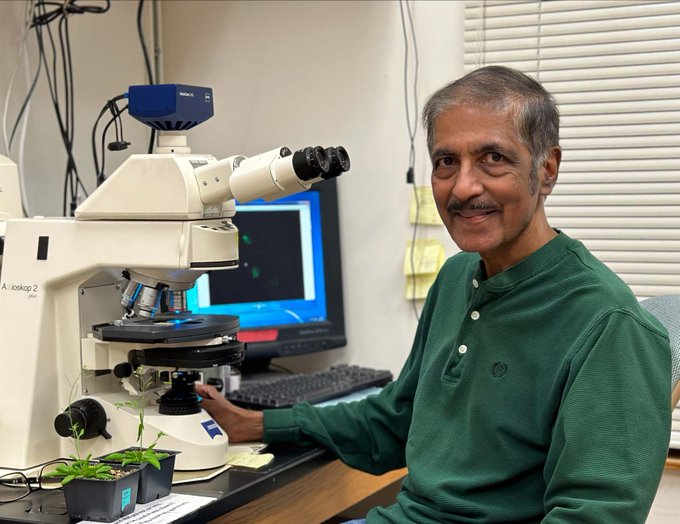(August 8, 2024) For addressing a long-standing problem in the sphere of sustainable agriculture and food security, Indian-American plant biologist Venkatesan Sundaresan has been awarded the 2024 Wolf Prize in Agriculture. Often referred to as the ‘Nobel Prize for agriculture,’ this prestigious award comes with a monetary prize of $100,000.
Rice, a staple crop for half of the world’s population, is relatively costly to breed into high-yield hybrid strains, imposing a big problem for farmers. Berkeley-based Innovative Genomics Institute explains: “For 10,000 years, the major world food crop, rice, has reproduced sexually, rearranging its DNA with each generation and often losing desirable traits.” The process has also not just been expensive but also time-consuming for farmers.
Venkatesan Sundaresan and his team at the University of California-Davis (UC Davis), after years of research, have introduced asexual reproduction of seeds into rice crop species through a process called ‘apomixis’ – finding a long-sought solution of the need to create exact replicas (clones) of hybrid rice plants from seeds without fertilisation. “The resulting increase in yields can help meet global needs of an increasing population without having to increase use of land, water and fertilizers to unsustainable levels,” the Global Indian was quoted in one of the publications of his workplace, UC Davis.

Dr Venkatesan Sundaresan in his lab | Image Credit: UC Davis
His groundbreaking discovery is being perceived as the one set to revolutionise agriculture as his method would not just reduce costs for farmers but allow them to save improved seed from one season to another.
Asexual reproduction of crop species
Plants are living organisms and reproduce either sexually or asexually. Until Sundaresan’s discovery, rice plants were reproducing only sexually. Sexual reproduction in rice plants happens when pollen from the male part of one plant fertilises the egg in the female part of another. This combines genetic material from both parent plants to create seeds. These seeds grow into new rice plants that have a mix of traits from both parents, leading to genetic diversity.
In contrast, asexual reproduction is a mode of reproduction where a single plant produces offspring. The new plants produced are genetically and physically identical to the parent, effectively making them clones.
Venkatesan Sundaresan, his postdoctoral team member Imtiyaz Khanday, and their colleagues in France, Germany, and Ghana discovered that a rice gene called ‘BBM1’ belongs to a family of plant genes known as ‘Baby Boom’ or BBM. They found that BBM1 enables a fertilised egg to form an embryo that grows asexually into a clonal seed.

Dr Venkatesan Sundaresan with Dr Imtiyaz Khanday | Image Credit: UC Regents
While asexual reproduction through seeds occurs in several plant species, it has not been observed in important staple crops like rice. Sundaresan and his team successfully tested this method in their laboratory, producing viable seeds (progeny) from hybrid rice plants. This means farmers could replant seeds from their own hybrid plants and benefit from high yields year after year. It is being believed that apart from helping farmers, Sundaresan’s method would also enable seed companies to produce hybrid seeds more quickly and on a larger scale.
Gamechanger for rice growing farmers
Sundaresan and his team’s discovery, long sought by plant breeders and geneticists, represents a major breakthrough, facilitating the propagation of high-yielding, disease-resistant, and climate-tolerant crops worldwide.
Currently, the high cost of producing hybrid seeds is a significant barrier for farmers in developing countries, especially in South Asia and Africa. Sundaresan believes that if efficiently deployed, his method could potentially be a game-changer for poorer farmers. They would only need to purchase hybrid seeds once and could then replant the progeny seeds from their own harvest in subsequent seasons.
“Rice is grown over such a vast climatic and geographic range that specialised hybrids will have to be developed for each region,” highlighted Sundaresan in an interview to the Nature India journal. “It will be interesting to see how all these plays out in the years to come,” he added.

Dr Venkatesan Sundaresan with one of his research team members, Hui Ren | Image Credit: UC Davis
Addressing a fundamental plant biology question
Sundaresan and his team have explored fundamental questions in plant biology, specifically how a fertilised egg develops into a new plant. This basic understanding, combined with innovative asexual breeding technologies, paves the way for breakthroughs in plant agriculture by preserving beneficial traits that might otherwise be lost through sexual reproduction.
The method of ‘apomixis’ discovered by Sundaresan and his team enables a plant to grow genetically identical to its parent plant.
“Apomixis in crop plants has been the target of worldwide research for over 30 years because it can make hybrid seed production accessible to everyone,” Sundaresan said. “In particular, rice is a genetic model for other cereal crops, including maize and wheat, which together constitute major food staples for the world,” he remarked. The plant biologist noted that these results could be applied to other such food crops so that the world’s food security index registers an improvement.
From Pune to United States
Born and raised in India Venkatesan Sundaresan majored in physics, earning undergraduate and graduate degrees from the University of Pune, and the Indian Institute of Technology-Kanpur. Following this, he went on to pursue a degree in physics from the Carnegie Mellon University.
Later, he transitioned to life sciences for his doctoral studies and obtained a Ph.D. in Biophysics from Harvard University, where he researched the regulation of nitrogen fixation genes in bacterial symbionts of legumes. This was followed by postdoctoral research in plant genetics at the University of California-Berkeley.

Dr Venkatesan Sundaresan
Sundaresan’s first faculty appointment was at the Cold Spring Harbor Laboratory in New York. He later became the founding director of the Institute of Molecular Agrobiology (now the Temasek Life Sciences Laboratories) at the National University of Singapore.
Since 2001, the scientist has been serving as a faculty member at the UC Davis, where he has also served as Chair of the Department of Plant Biology and as Program Director of the BREAD program, a collaboration between the National Science Foundation and the Bill & Melinda Gates Foundation. He has also served on the editorial boards of several journals like ‘Genetics’, ‘Plant Reproduction’, ‘The Plant Cell’, and ‘Trends in Plant Science’.
“My lab’s research focus is on plant reproduction, particularly the genetics and genomics of this process using Arabidopsis and rice as model systems. We aim to understand the underlying mechanisms and employ genome editing techniques to enable asexual reproduction in crop plants, which can revolutionise agricultural practices. Additionally, we study root microbiomes, exploring their assembly, structure, and function,” writes Sunderesan on his lab’s website. “Our work delves into host-microbiome interactions in rice roots, seeking to uncover how these relationships influence plant growth and drought tolerance. Through these studies, we aim to enhance crop resilience and productivity, contributing to sustainable agriculture and food security,” mentions the recipient of the prestigious 2024 Wolf Prize in Agriculture.
Also Read: Rattan Lal: From childhood farmer to godfather of soil science
Also Read: Antarctica’s Mount Sinha: Named after a Bihar-born scientist in the USA



